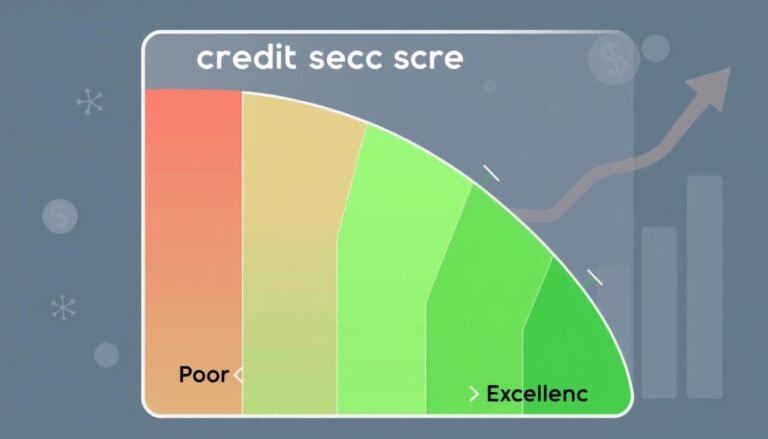Sustainable and Ethical Investing
Sustainable and ethical investing is changing the financial world. It’s a way to grow your money while supporting good causes. This approach looks at more than just profits. It considers how companies treat the planet, their workers, and their communities.
ESG investing is a key part of this trend. ESG stands for Environmental, Social, and Governance. It helps investors pick companies that care about these important areas. For example, firms that cut pollution or have diverse boards often do well in ESG ratings.
Socially responsible investing is growing fast. More people want their money to match their values. They avoid companies that harm society, like those selling tobacco or weapons. Instead, they choose businesses that make positive changes.
This shift is big news for Wall Street. Many top firms now offer ethical investment options. They know that doing good can also mean doing well financially. Studies show that ethical companies often perform better in the long run.
Key Takeaways
- Ethical investing balances profits with positive impact
- ESG factors guide investment choices
- Socially responsible investing is gaining popularity
- Many financial firms now offer ethical options
- Ethical companies may perform better long-term
Understanding Sustainable and Ethical Investing
Sustainable and ethical investing has become more popular. It lets investors match their money goals with their values. They look for companies that care about the environment, society, and good governance.
Definition and Core Principles
Ethical investing means putting money into companies that act responsibly. These companies take care of the environment, treat workers fairly, and have good leadership. Ethical Funds have become very popular, with $8.4 trillion invested in the US by 2021.
Historical Evolution of Ethical Investing
Ethical investing started with religious groups in the 18th century. It grew to include more social issues over time. Now, it focuses on the environment and society, with $1.2 trillion managed by 645 investment companies in 2022.
The Growing Importance in Modern Finance
Ethical investing is now key in finance. It’s because people care more about companies’ actions and the planet. In 2022, $762 billion was managed under ESG criteria, showing its big impact. Community investment institutions also play a big role, with $458 billion in assets.
The ESG Framework: Environmental, Social, and Governance Factors
The ESG framework is key to Sustainable Finance. It helps investors choose companies that care about the planet and people. This approach looks at a company’s environmental, social, and governance practices.
Environmental Considerations
Environmental factors look at a company’s effect on the planet. This includes things like greenhouse gas emissions and how much energy it uses. Some funds won’t invest in coal or tar sands because they harm the environment.
Social Responsibility Metrics
Social factors check how companies treat their workers, customers, and communities. This includes things like human rights and diversity. More and more investors want companies that care about social issues, with 74% finding it very important.
Corporate Governance Standards
Governance factors look at a company’s leadership and how it’s run. This includes things like how transparent it is and how it treats shareholders. MSCI rates over 8,500 companies on their ESG practices, helping investors make informed choices.
| ESG Factor | Key Considerations | Investor Focus |
|---|---|---|
| Environmental | Carbon emissions, resource management | Climate resilience, sustainability |
| Social | Employee welfare, community impact | Human rights, diversity |
| Governance | Board structure, executive compensation | Transparency, shareholder rights |
ESG investing is becoming more popular. In 2023, ESG-focused funds hit a record $480 billion in assets. This shows investors are more focused on making money while also helping the planet and society.
Types of Ethical Investment Strategies
Ethical investing has grown a lot, offering many ways for investors to match their money with their values. Values-based Investing, Socially Responsible Investing, and Impact Investing are main ways to do this.
Values-based Investing means picking investments that fit your personal beliefs. It often means staying away from “sin stocks” like tobacco or guns. The Fidelity Mutual Trust, started in 1928, is a great example, with 12% annual returns since it began.
Socially Responsible Investing looks at both ethics and ESG (Environmental, Social, and Governance) factors. It excludes harmful practices and checks a company’s stance on climate change, labor rights, and governance.
Impact Investing aims to make a positive difference while earning money. It supports companies that are green, even if they’re in tough industries. From 2010 to 2020, ESG funds jumped from $569 billion to $16.5 trillion, showing more people are into this.
Investors have many choices for ethical investing:
- Individual stocks
- Exchange-traded funds (ETFs)
- Mutual funds
- Green and social bonds
- Community investing initiatives
Each method has its own perks, letting investors customize their portfolios to fit their values and financial aims.
Performance Analysis of Sustainable Investments
Sustainable investments are becoming more popular. They show strong ESG performance. Let’s look at the data to see how they compare to traditional investments.
Historical Returns vs Traditional Investments
In 2023, sustainable funds did well, with median returns of 12.6%. This was better than traditional funds at 8.6%. Sustainable equity funds did even better, with returns of 16.7% compared to 14.4% for traditional funds.
Risk Management Benefits
Ethical investments perform well in volatile markets. The Morgan Stanley Institute for Sustainable Investing found ESG-focused funds beat non-ESG funds by 4.3% in extreme market times. This shows sustainable investments might manage risk better.
Long-term Performance Metrics
Sustainable investing looks promising over the long term. A $100 investment in a sustainable fund in December 2018 grew to $135 by 2023. This is more than the $125 for traditional funds. The Global Impact Investing Network also found impact investing funds under $100 million had a 13.1% net IRR. This is much higher than non-impact funds at 3.6%.
| Metric | Sustainable Funds | Traditional Funds |
|---|---|---|
| Median Returns (2023) | 12.6% | 8.6% |
| Equity Fund Returns (2023) | 16.7% | 14.4% |
| Fixed-Income Fund Returns (2023) | 10% | 6.4% |
| $100 Investment Growth (2018-2023) | $135 | $125 |
These numbers show sustainable investments can offer good returns. They also align with ethical values. This makes them a great choice for investors who care about the planet and people.
Building an Ethical Investment Portfolio
Creating an ethical investment portfolio needs careful thought. It’s about matching your financial goals with your values. You also want to keep your investments balanced and profitable.
Asset Allocation Strategies
For an ethical portfolio, balance is key. A good mix might be 70% stocks and 30% bonds. This mix offers growth and stability from bonds.
Screening and Selection Process
Choosing the right investments for an ethical portfolio is important. Use tools to avoid companies in bad industries like tobacco or fossil fuels. Look for businesses that are good for the planet and society.
Portfolio Diversification Techniques
Diversifying your portfolio is crucial for ethical investing. Spread your investments across different areas. This way, you balance risk and stay true to your values.
| Asset Type | Allocation | Example |
|---|---|---|
| ESG Stocks | 50% | iShares ESG Aware MSCI USA ETF |
| Green Bonds | 30% | Environmental Project Bonds |
| Impact Investments | 20% | Renewable Energy Projects |
By thinking through these steps, you can build a strong ethical portfolio. It will match your values and financial goals.
Impact Investing and Measurable Outcomes
Impact investing goes beyond just making money. It focuses on making a real difference. This means looking for projects that help solve big problems.
It focuses on areas like clean energy, affordable homes, health care, and education. These sectors offer chances to make a big impact and earn money. Using ESG metrics helps investors see how well these projects are doing.
The Global Impact Investing Network (GIIN) helps fund managers in this field. They offer tools to measure the good done by investments. This makes impact investing different from other green investing methods.
“Impact investing channels private capital into projects that benefit society and the environment, while still aiming for financial returns.”
Companies like Danone and Patagonia show how well impact investing works. They’ve put money into projects that help both their business and society. For instance, Beyond Meat’s way of making meat uses less water and cuts down on pollution compared to regular beef.
| Impact Investing Focus | Example | Measurable Impact |
|---|---|---|
| Renewable Energy | Solar Panel Projects | Reduction in CO2 Emissions |
| Affordable Housing | Low-Income Apartment Complexes | Number of Families Housed |
| Healthcare | Rural Medical Clinics | Patients Treated |
| Education | School Construction in Developing Countries | Literacy Rates Improvement |
As more people get into impact investing, it’s important to have clear ways to report on it. This lets investors see how well projects are doing. The growth of impact investing shows a big shift towards using money to make the world a better place.
Ethical Investment Vehicles and Products
Ethical investing offers many sustainable options. These choices let investors match their money with their values. They also aim for financial gains.
ESG Mutual Funds
ESG mutual funds are popular with those who care about ethics. They pick stocks based on how green, fair, and well-run a company is. In 2019, 66% of these funds did better than regular funds.
Green Bonds
Green bonds fund eco-friendly projects. They let investors support green causes and earn interest. The demand for these bonds has really grown.
Sustainable ETFs
Sustainable ETFs are a cheap way to invest in green companies. In the first quarter of 2020, 24 out of 26 ESG funds beat regular funds. This shows their strong potential.
| Investment Vehicle | Key Feature | Performance Highlight |
|---|---|---|
| ESG Mutual Funds | Stock selection based on ESG criteria | 66% outperformed in 2019 |
| Green Bonds | Finance eco-friendly projects | Growing market size |
| Sustainable ETFs | Low-cost exposure to ESG-rated companies | 92% outperformed in Q1 2020 |
The ethical investing sector is expected to hit $50 trillion by 2025. With so many choices, investors can find products that fit their goals and values.
The Role of Technology in Ethical Investing
Technology is changing how we invest ethically. It makes it simpler for investors to match their money with their values. ESG Investment Technology is leading the way in making sustainable finance more accessible and informed.
Robo-Advisors for Sustainable Investing
Ethical Robo-Advisors are transforming sustainable investing. These automated systems use algorithms to create and manage ethical portfolios. They look at ESG factors and traditional financial data, offering a tailored approach to socially responsible investing.
- Set their ethical investing goals
- Choose from pre-designed ESG portfolios
- Automatically rebalance investments to maintain desired ethical allocations
Digital Platforms and Tools
Sustainable Investing Apps are becoming more popular. They give investors powerful tools for making ethical investment choices. These apps offer features like:
| Feature | Benefit |
|---|---|
| ESG Ratings | Quickly assess a company’s environmental, social, and governance performance |
| Impact Reports | Measure the positive outcomes of your ethical investments |
| Screening Tools | Filter investments based on specific ethical criteria |
| Portfolio Analysis | Evaluate the overall ESG score of your investment portfolio |
These digital tools help investors make informed choices. They align investments with values while pursuing financial goals. As ESG Investment Technology grows, we’ll see even more advanced tools for ethical investing.
Challenges and Limitations in Ethical Investing
Ethical investing is becoming more popular, but it faces many challenges. It’s important to know the obstacles it may encounter.
Greenwashing Concerns
Greenwashing is a big problem in ethical investing. Companies might claim to be more eco-friendly than they really are to attract investors. This makes it hard for investors to find genuine sustainable options.
To avoid greenwashing, investors should do their homework. They need to check if a company’s claims are true and look at its past actions. This ensures their investments match their ethical values.
Performance Trade-offs
Another issue is the risk of lower returns in sustainable investing. Some think that focusing on ethics might mean missing out on profits. This is because ethical funds might not invest in as many opportunities.
But, recent data shows this might not be true:
- ESG funds saw net inflows of $71.1 billion in Q2 2020
- Total assets under management in ESG funds surpassed $1 trillion
- Ethical funds often outperform non-ethically screened counterparts
Even with these positive signs, there are still downsides. Ethical investing can cost more because of the detailed research needed. Investors must balance their ethical beliefs with the potential for lower returns.
It’s key to understand these challenges to navigate the world of ethical investing. By staying informed and careful, investors can choose options that fit their values and financial goals.
Future Trends and Market Evolution
The future of ethical finance is looking good, with sustainable investing on the rise. In the first half of 2023, sustainable funds hit a record 7.9% of global assets. This shows more people, especially the young, are interested in ESG.
A huge 99% of U.S. Millennials wanted to invest sustainably in 2021. This interest is driving the growth of the ESG market.
The global Sustainable Finance market was worth $2,456.5 million in 2023. It’s expected to hit $4,339.5 million by 2030, growing at 8.6% annually. Big names like BlackRock and Goldman Sachs are leading this charge.
Regulatory changes are also playing a big role. The EU’s new rules on ESG reporting will affect over 50,000 companies. This could lead to even more growth in sustainable investments.
There’s a 17% jump in jobs for finance pros focused on sustainability. This shows the sector is booming.
The impact investing market is set to grow by 17.22% from 2022 to 2027. This could add $503.95 billion to its size. With more demand for green products, ethical finance’s future looks bright.
Source Links
- Ethical Investing 101: Understanding ESG Impact
- Ethical Investing: Overview and How To Do It
- The Sustainable Investment Forum
- Ethical Investing Explained — The Wealth Genesis
- What Is ESG Investing?
- ESG (Environmental, Social, & Governance)
- ESG: environmental, social, & governance investing explained
- 5 Types of Ethical Investment That Make a Difference
- Ethical Investing | Principles, Strategies, Challenges & Criticisms
- Sustainable Funds Beat Peers in 2023 | Morgan Stanley
- The Sustainable Investment Forum
- How to Invest Ethically | Building and Managing Your Portfolio
- Ethical Investing: What It Is and How to Do It | The Motley Fool
- undefined
- ESG, SRI and Impact Investing: Key Differences Explained
- ESG vs. Impact Investing: Understanding the Difference
- Impact Investing: Everything You Need To Know About It
- What Is Ethical Investing and How Do You Do It? – NerdWallet
- Guide to ethical investing – Times Money Mentor
- Socially responsible investing
- What is Ethical Investing and It’s Types
- Socially Conscious Investing | Definition, Importance & Impact
- Ethical Investing: Should you invest in it?
- Ethical Investing
- Sustainable Investing: 10-Year Outlook | Morgan Stanley
- Sustainable Finance Market: Growth, Trends, and Future Outlook
- Investing in Sustainability: Green Investments and Sustainable Finance Trends in 2024 | Cash Store








